The Azure Cloud Security Certification Training is a professional certification offered by Microsoft that validates the skills and knowledge required to secure cloud environments using Azure services. This certification, officially known as Microsoft Certified: Azure Security Engineer Associate, focuses on helping IT professionals and security experts design, implement, and manage secure cloud infrastructures within the Azure platform. It is aimed at those responsible for ensuring the confidentiality, integrity, and availability of data and applications in the cloud, particularly in environments utilizing Microsoft Azure services. The certification covers various aspects of cloud security, including identity and access management, network security, security operations, data protection, and governance. Professionals with this certification are expected to manage and implement security controls, perform threat protection, monitor the security posture of Azure environments, and respond to security incidents. The certification also emphasizes securing data and applications, managing security identity, securing network architectures, and implementing compliance and regulatory controls.
 Top Ranked Cyber Secuirty Course By HACKING TEACHER
Top Ranked Cyber Secuirty Course By HACKING TEACHER
































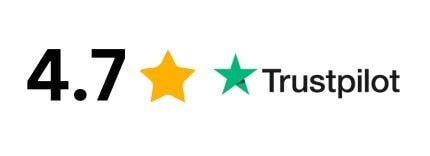

AI Powered Full Stack Web Development Course
Learn AI powered web development and futureproof your career to lead in an AI dominated tech industry.
The Azure Cloud Security Certification training is ideal for IT professionals and security experts who are responsible for managing and securing cloud environments within Microsoft Azure. It is particularly suited for individuals working in roles such as cloud security engineers, cloud architects, system administrators, and IT managers who want to enhance their knowledge and skills in securing Azure environments.
The training is also beneficial for cybersecurity professionals seeking to specialize in cloud security, as well as those transitioning from traditional on-premises security to cloud-based security practices. This certification is recommended for those who already have a foundational understanding of Azure and basic cloud computing concepts, as it builds on that knowledge to focus specifically on security aspects within the Azure ecosystem.
Professionals looking to ensure data protection, secure identities, configure network security, and implement security operations in Azure will find the training highly valuable. It is also well-suited for individuals who aim to implement compliance and regulatory controls within an Azure environment, as it covers these critical aspects of cloud security. Additionally, the training is ideal for security consultants and penetration testers who want to deepen their expertise in securing cloud infrastructures and applications in Microsoft Azure.
Anyone aspiring to become a security-focused professional in cloud environments or those looking to pursue roles like Azure Security Engineer, Cloud Security Architect, or Security Operations Analyst should consider taking this course. The training is beneficial for individuals seeking to gain expertise in securing Azure-specific services, tools, and platforms, and those aiming to achieve the Microsoft Certified: Azure Security Engineer Associate certification.
































Highest Salary
Average Salary
Hiring Partners


+ Unlimited Pwnbox usage
+ CPE credits submission
+ Unlimited Pwnbox usage
+ CPE credits submission
+ Unlimited Pwnbox usage
+ CPE credits submission
+ Unlimited Pwnbox usage
+ CPE credits submission
The Hacking Teacher Certification teaches educators about teaching ethical hacking and cybersecurity with the proper skills. This program offers extensive training on some of the most technology pressing issues facing the cyber security world today including penetration testing, threat analysis and secure coding. It is ideal for IT professionals and trainers to ensure that all knowledge is transferred for audiences to inspire the next generation of cybersecurity experts.

We focus on essential exploiting topics such as SQL Injection, Wireless Networks, IoT Hacking, Cloud Computing, social engineering, sniffing, and session hi jacking.










Enterprise Attack Simulation Training is an opportunity to practice simulating cyberattacks against corporate networks on a hands-on basis. Participants learn how to find vulnerabilities, to exploit weaknesses and to evaluate system defenses using advanced tools and methodologies.
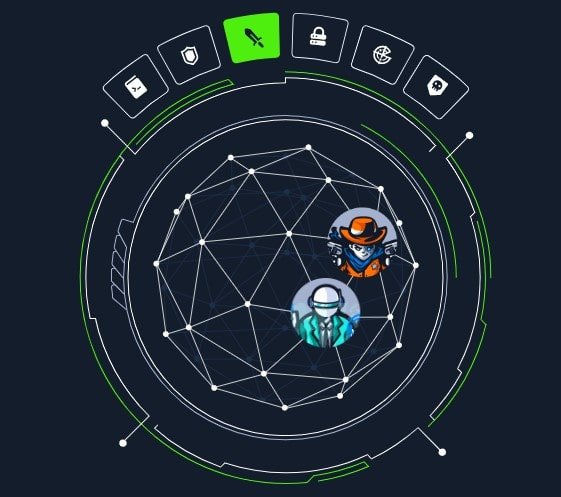
The practice is in live, not simulated virtual IT labs built according to the leading vendors certifications, including: Apart from these CompTIA, Microsoft, Cisco, VMware etc." Our labs were designed to be interactive, and targeted towards a lot of real world experience so learners can hone their practical skills. We work with subject matter experts on networking, security, cloud computing and more, and we create and deliver labs based on these core IT competencies.

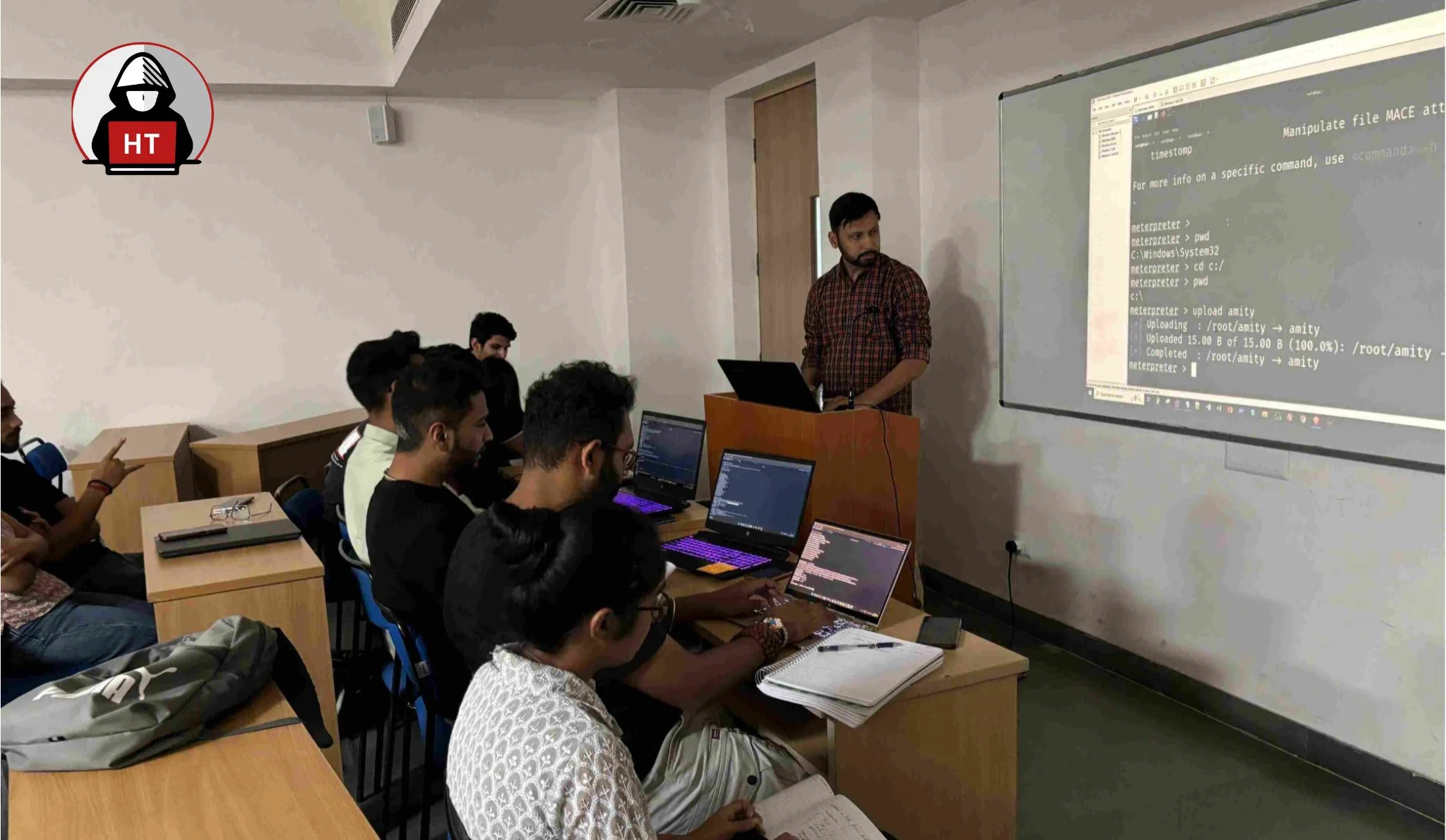
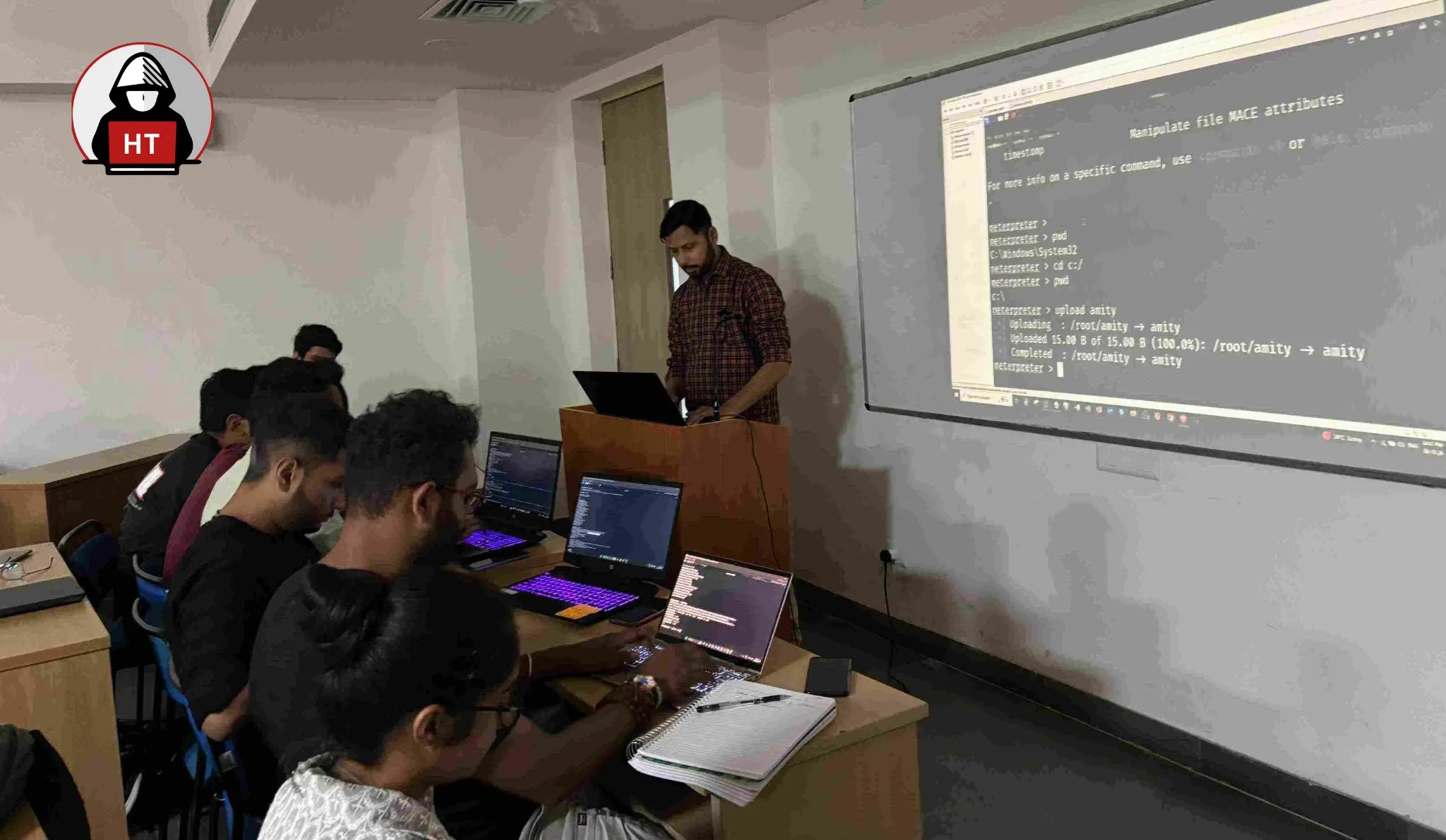
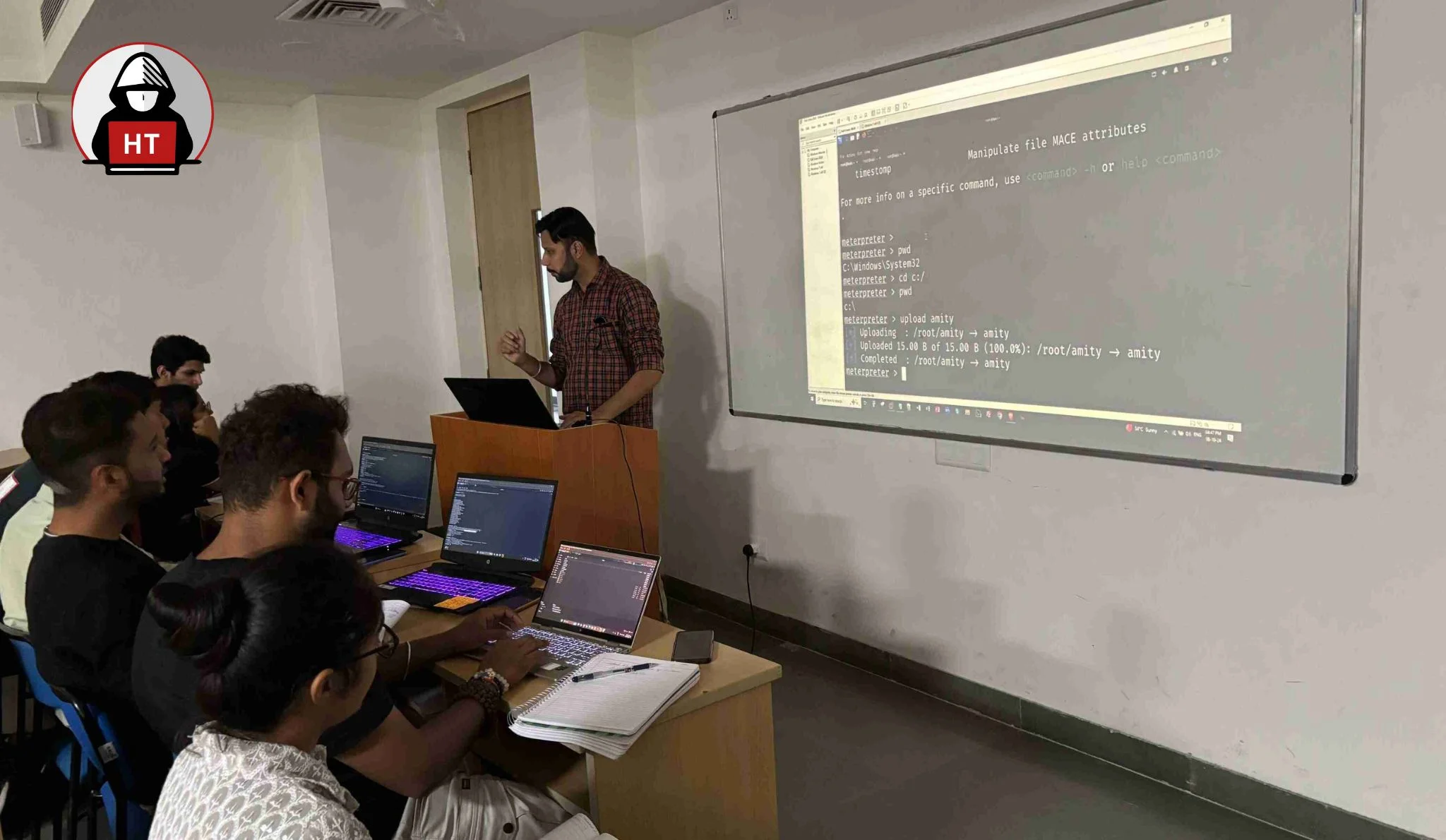
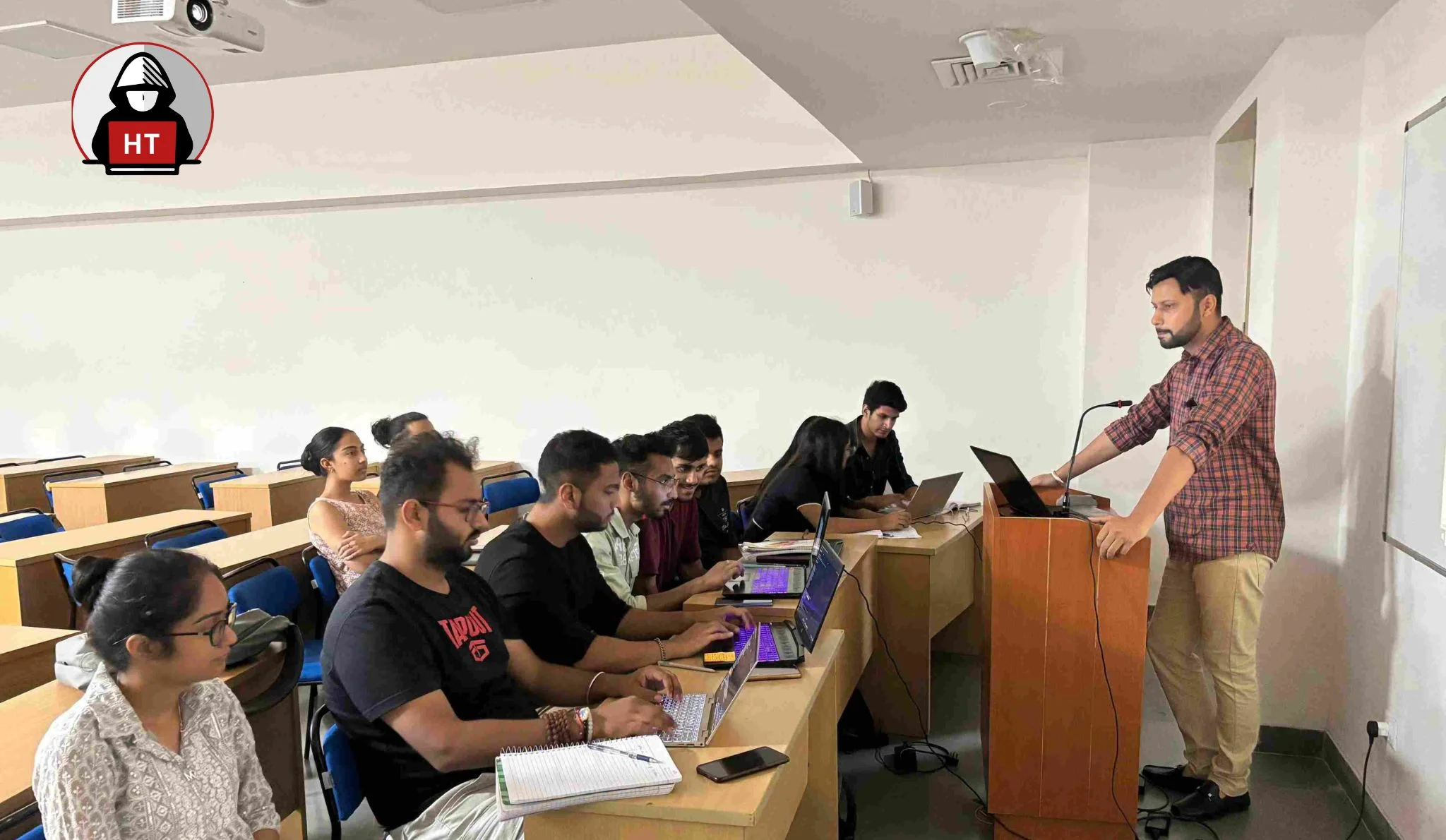
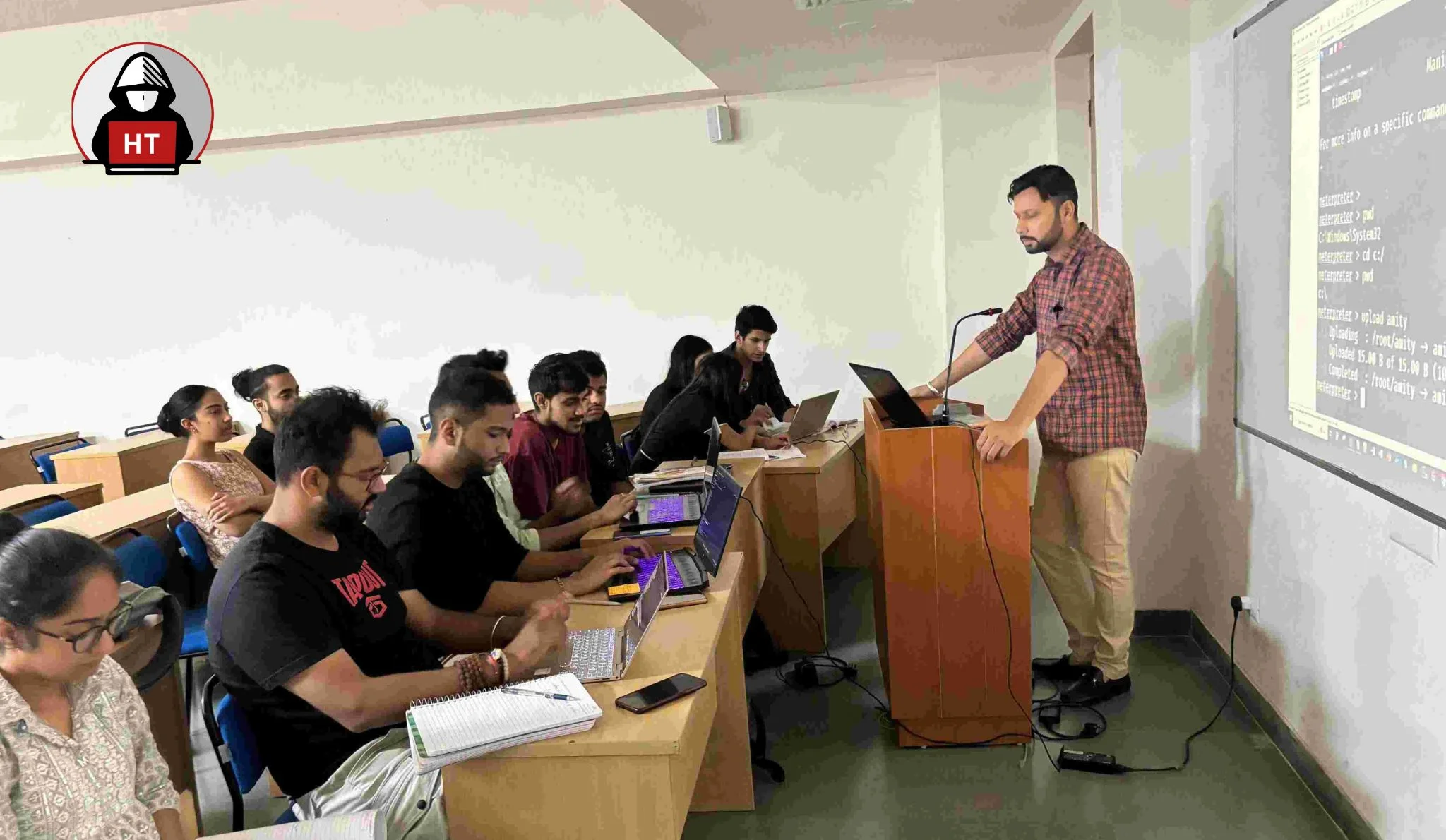
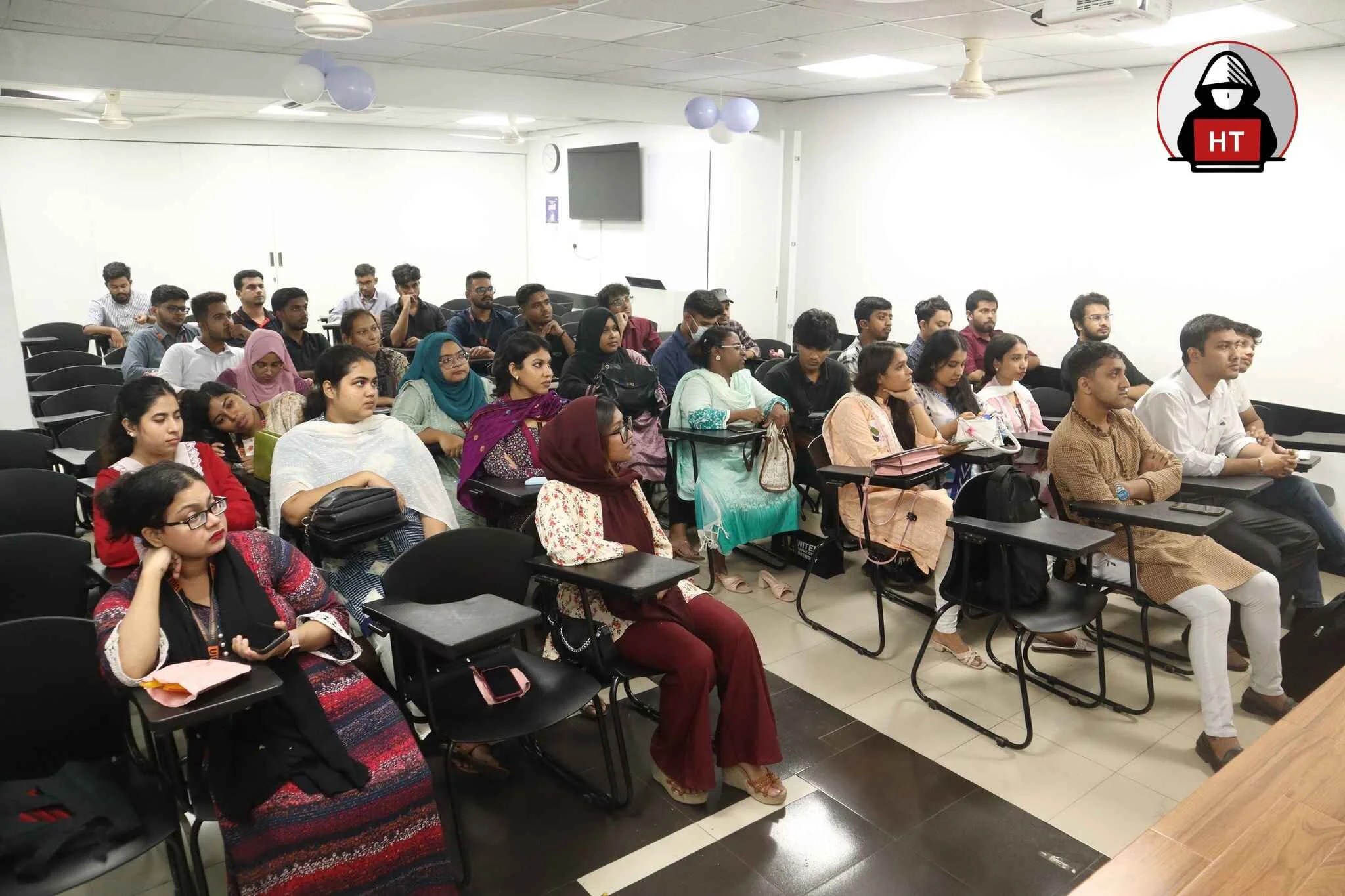
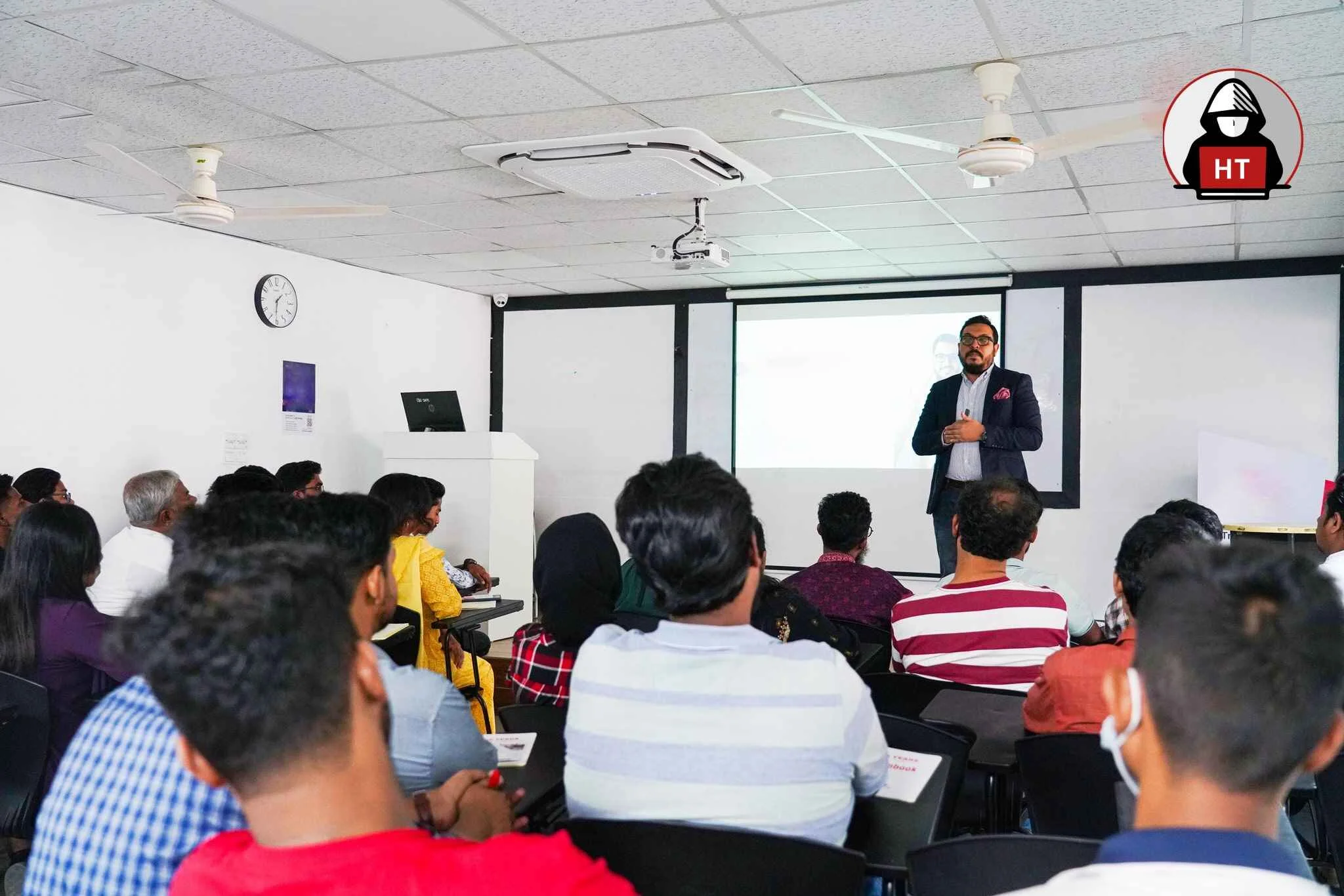
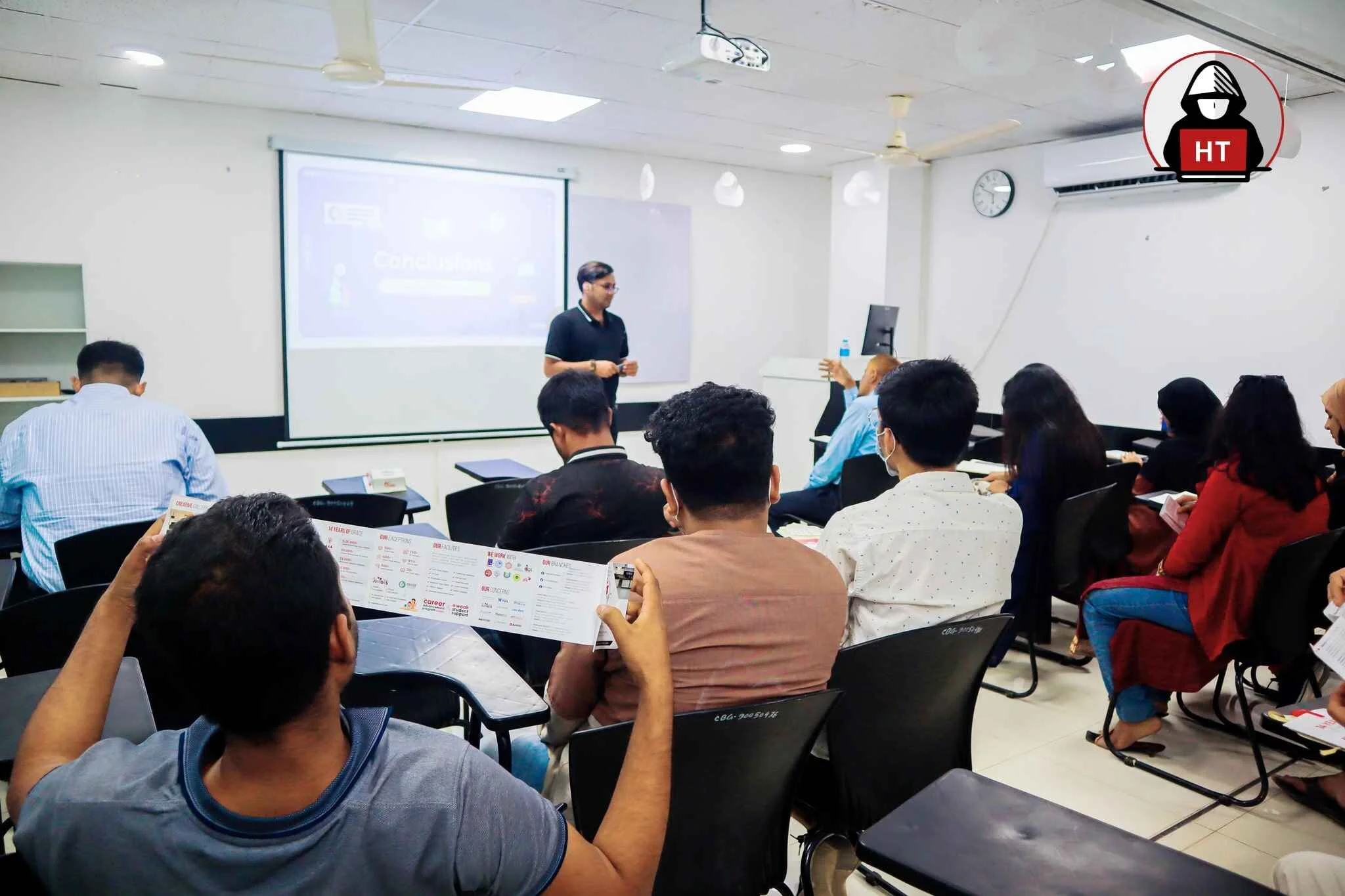


Hacking teacher Learning is here to ensure that you don’t get left behind in a world of technology that is too quickly changing. On a day to day basis, we’re recording and sharing content that can impact your bottom line.

Becoming Azure Cloud Security certified offers several key benefits that can significantly enhance your career and skill set in the rapidly growing cloud security field. Firstly, it boosts your credibility and marketability. With the increasing reliance on cloud platforms like Microsoft Azure, organizations are prioritizing cloud security. Holding this certification demonstrates to employers that you possess the knowledge and expertise to secure their Azure environments, making you a valuable asset to the organization. Secondly, the certification can open up better career opportunities. Azure Cloud Security certified professionals are in high demand, as businesses need experts to protect their cloud infrastructures. This certification qualifies you for roles like Azure Security Engineer, Cloud Security Architect, and Security Operations Analyst, among others.
It not only helps you secure these roles but also positions you for higher salary prospects, as certified professionals typically earn more than their non-certified counterparts. Another key benefit is that it enhances your technical knowledge. The Azure Cloud Security certification training covers a wide range of essential skills, including identity management, platform protection, network security, threat detection, and compliance.
This deep understanding of Azure security tools and best practices enables you to respond effectively to security challenges and protect cloud resources from evolving threats. Additionally, obtaining this certification provides career growth potential. By gaining expertise in cloud security, you increase your ability to take on more advanced security responsibilities, lead security projects, and manage teams. The certification also helps you stay current with industry standards and best practices, ensuring that your skills remain relevant in an ever-evolving field.
Finally, achieving Azure Cloud Security certification can give you a sense of accomplishment and confidence in your ability to secure cloud infrastructures, benefiting both your professional reputation and personal growth.
With the rapid adoption of cloud computing, ensuring the security of cloud environments has become paramount. Microsoft Azure, a leading cloud platform, offers a range of services and tools that organizations use to run applications, manage data, and streamline IT operations.
However, with increased capabilities come unique security challenges, and IT professionals must be equipped to protect Azure environments against threats, vulnerabilities, and unauthorized access. Azure Cloud & Security courses provide the essential knowledge and skills required to secure resources, monitor threats, and maintain compliance in Azure. This blog explores the significance of Azure security, breaks down a typical course structure, covers core concepts, skills, and tools, and highlights the career opportunities available for Azure security professionals. Azure Cloud & Security courses cover identity management, network security, data protection, monitoring, threat response, compliance, and much more, preparing participants to safeguard cloud assets effectively and support their organization’s security strategy. For IT and security professionals seeking to advance their skills, Azure Cloud & Security training is a valuable path for career growth and specialization.
As organizations continue to move critical applications and data to Azure, securing these cloud resources becomes increasingly essential. Azure Cloud Security courses train professionals to address common security risks, protect data, and ensure compliance with regulatory requirements. Cloud security in Azure involves a shared responsibility model, in which Microsoft is responsible for the security of the cloud infrastructure, while customers are responsible for securing the applications and data they run within the cloud.
This shared model is central to Azure security, and understanding the division of responsibilities is crucial for protecting resources. In Azure Cloud Security training, professionals learn the fundamentals of cloud security, such as managing access control, implementing encryption, and monitoring for threats. These courses empower security teams to understand Azure-specific risks, apply best practices, and use Azure’s built-in tools to prevent unauthorized access and detect potential vulnerabilities. As cloud adoption grows, having a well-rounded knowledge of Azure security is essential for any IT or cybersecurity professional looking to stay competitive and keep their organization’s data secure.
A comprehensive Azure Cloud & Security course typically starts with an introduction to cloud security concepts and Azure’s unique features. The course then dives into Azure-specific security topics, covering identity and access management, network security, data protection, threat detection, incident response, and compliance. The course curriculum often features interactive labs and exercises, allowing participants to gain hands-on experience in configuring Azure resources, securing networks, and responding to simulated security events.
By the end of the course, participants are expected to understand Azure’s security architecture, know how to use built-in security tools, and be able to implement best practices for securing cloud environments. Azure Cloud Security training covers both foundational concepts and advanced techniques, preparing professionals to handle a wide range of security tasks within Azure. For those pursuing Azure certifications, such as Microsoft Certified: Azure Security Engineer Associate, these courses provide targeted knowledge and practice necessary to pass certification exams. Completing an Azure Cloud & Security course not only enhances technical skills but also provides a strong foundation for advancing within the cloud security domain.
Monitoring and threat detection are essential for maintaining security in Azure environments, as they allow security teams to identify and respond to potential threats in real time. Azure Security Center and Azure Sentinel are two powerful tools that help organizations monitor their resources, detect anomalies, and respond to security incidents. Azure Security Center provides a unified view of security across Azure, offering recommendations for improving security posture and detecting vulnerabilities.
Security Center’s Threat Protection feature uses machine learning to identify unusual activity, enabling security teams to respond to threats quickly. Azure Sentinel, a cloud-native Security Information and Event Management (SIEM) system, aggregates and correlates data from multiple sources, providing a centralized view of security events across the organization. In Azure Cloud Security training, participants learn to configure Security Center and Sentinel, set up alerts for suspicious activity, and use dashboards to monitor security events. Sentinel’s automation capabilities allow for automated responses to certain types of incidents, reducing the workload on security teams. Hands-on labs in monitoring and threat detection provide practical experience in setting up security alerts, investigating incidents, and creating automated response workflows, enabling participants to detect and mitigate threats efficiently.
Incident response is a critical component of Azure security, and Azure Cloud Security courses teach professionals how to respond to security incidents using automation tools. Azure Logic Apps and Azure Automation enable organizations to automate response workflows, making incident response faster and more efficient. Logic Apps provides a visual workflow designer that allows security teams to create automated responses to specific triggers, such as notifying administrators of a high-priority alert or isolating a compromised resource.
Azure Automation supports the creation of runbooks, which are scripts that perform routine tasks, such as shutting down virtual machines or applying security updates. Participants learn to use these automation tools to create incident response workflows, helping to reduce the impact of security incidents and minimize downtime. Automation is essential for large Azure environments, where manually responding to every alert is impractical. By integrating automation into incident response processes, professionals can ensure that security incidents are handled swiftly, protecting resources from further compromise. Through hands-on labs, participants gain experience in designing automated workflows and managing incident response processes, equipping them with the skills needed to handle security incidents effectively.

Interview wifi Hacking

Life of Hacking Teacher

Microsoft on Vishal Sharma

Software Engineer at BrightF
“Hacking Teacher’s Azure Cloud & Security course offers a concise yet comprehensive approach to mastering Azure’s cloud capabilities while emphasizing robust security practices. Ideal for professionals at all levels seeking practical insights into Azure and security.”

Software Engineer at Bytion
“Dive into Azure Cloud & Security with Hacking Teacher’s focused course. From fundamentals to advanced techniques, this training delivers actionable knowledge to bolster your Azure skills and security expertise.”

Data Analysis at NBoost
“Elevate your Azure proficiency with Hacking Teacher’s Azure Cloud & Security course. Gain practical insights and security best practices to excel in Azure cloud environments. An essential resource for cloud and security enthusiasts alike.”
FAQ
Our online courses are tailored to your specific needs, whether you are an experienced senior executive or a rookie leader.
Lorem ipsum, dolor sit amet consectetur adipisicing elit. Eum laborum qui tempora numquam!
The Azure Cloud Security Certification Training is intended for providing professionals with knowledge that helps in securing Microsoft Azure environments. It discusses identity and access management, security operations, data protection and securing cloud applications.
For intensive courses the training lasts 2 – 3 weeks, more gradual courses may take 1 – 2 months.
The reader would require basic understanding of cloud computing, networking and security principles. It is good to have some experience with Azure or cloud services.
The Microsoft Certified: For people interested in specializing in Azure security, such as protecting cloud environments, monitoring the security posture, and applying security control, Azure Security Engineer Associate certification is the best course.
If you already have some background in the cloud security or Azure field, it’s definitely possible to finish the Azure Cloud Security Certification Training in one month, with enough dedication and preparation.
There is no one "diploma" for Azure Cloud Security. Instead, focus on certifications like Microsoft Certified: Associate Azure Security Engineer.
Demand for high paying roles such as Cloud Security Engineer, Security Consultant, Cloud Administrator and Solutions Architect is also high.
Yes, you can use some resources such as Microsoft Learn, online such as Udemy, Pluralsight, or Azure free tier for your hands on.
Start with Microsoft Certified: Start at the Azure Fundamentals (AZ-900) to get foundational knowledge and go into security specific training.
Basic IT knowledge. A certain level of understanding of the cloud computing. The access to Azure (free tier available). Official guides, courses, training resources. Associating hands on labs and practice exams with dedication
Knowledge: It should be noted that cloud services and IT security concepts need to be learned well. Skills: Familiarity with Azure services, Azure identity management techniques and network security, as well as governance. Experience: Advanced certifications recommend hands on experience with Azure.
Microsoft Certified: Azure Cloud Security is one of the top certification for Azure Security Engineer Associate (AZ-500). Azure Cloud Security Certification Training Tough or not is one of the questions that troubles many people who are considering learning it. That depends on experience. Over all the fundamentals are manageable for beginners. For an advanced certification such as AZ-500, you will need strong knowledge and hands on experience.
Official Free Resources Microsoft Learn.Online Platforms: Coursera, Udemy, Whizlabs, Plurals.Bootcamps: A Cloud Guru, Simplilearn.Local Training Centers: Make sure to check them with certified Microsoft training partners.
AZ-500 course at Microsoft Learn is the most effective and widely recommended with hands on labs and practice tests.